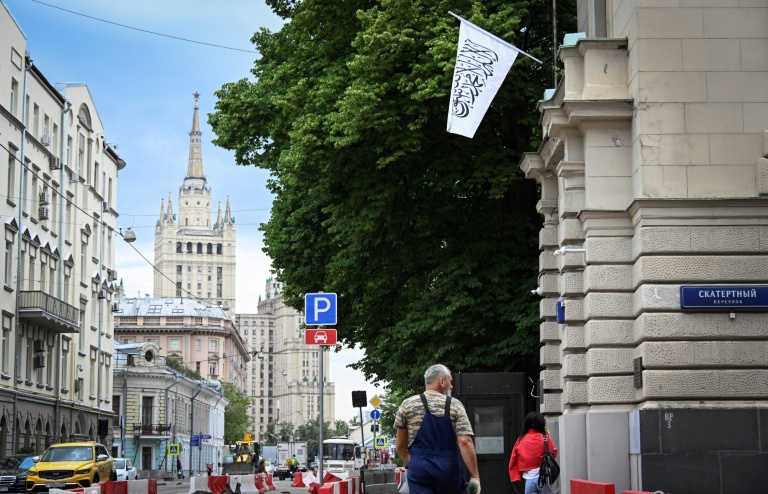Russia’s formal recognition of the Taliban government has stirred a complex mix of hope and skepticism among Afghans. This landmark decision, announced on Thursday, positions Russia as the first country to officially acknowledge the Taliban authorities since their rise to power in 2021. While some view this as a potential catalyst for economic revival, others remain doubtful about tangible improvements in their daily lives.
The recognition follows a steady warming of relations, marked by Russia’s removal of the Taliban from its list of terrorist organizations and the acceptance of a Taliban-appointed ambassador. Since the Taliban’s takeover, Afghanistan has been grappling with its status as one of the world’s poorest nations, struggling to recover from decades of conflict.
Historical Context and Economic Prospects
The Taliban’s return to power in 2021, following the withdrawal of US-led forces, ended a 20-year war but left Afghanistan in a precarious state. Gul Mohammad, a 58-year-old Kabul resident, expressed cautious optimism about the recognition. “With the current situation in Afghanistan, with all the challenges, everyone is worried. If the world recognises Afghanistan, we will be happy, currently, even the tiniest thing matters,” he shared.
Despite his painful memories of the Soviet invasion in 1979, which forced him into exile in Pakistan, Mohammad acknowledges that priorities have shifted. Meanwhile, Jamaluddin Sayar, a 67-year-old retired pilot, anticipates that “trade and economic prosperity will now blossom.” He urged other nations to follow Russia’s lead, emphasizing the need to “stop spreading propaganda against the Islamic Emirate.”
Security Concerns and International Relations
Russian and Afghan officials have hailed the recognition as a gateway to deeper cooperation, particularly in economic and security sectors. Security remains a critical area of collaboration, with the Taliban authorities assuring the international community that Afghan soil will not be used for militant activities targeting other nations.
However, tensions with neighboring Pakistan have escalated due to a surge in militant activity since the Taliban’s ascension. Last year, a devastating attack in a Moscow concert hall, claimed by the Islamic State group’s Afghan branch, underscored the persistent security challenges.
Voices of Dissent and Women’s Rights Concerns
In Kabul, where dissent is tightly controlled, some residents fear speaking out against the Taliban. Atef, a 25-year-old unemployed man, expressed skepticism about the benefits of improved Afghan-Russian relations. “I think Afghanistan will fall into the traps of the Russians again, the issues and challenges will increase, and there is nothing that can help ordinary people,” he said.
For Afghan women’s rights activists, the recognition represents a significant setback. The Taliban’s imposition of strict Islamic law, reminiscent of their previous rule from 1996 to 2001, has raised alarm among advocates. Norway-based activist Hoda Khamosh criticized the move, stating, “Human rights organisations right now are trying to recognise gender apartheid in Afghanistan because the Taliban are a repressive regime against women.”
“Therefore, these recognitions will not lead to anything,” Khamosh concluded, highlighting the ongoing struggle for women’s rights under Taliban rule.
The Road Ahead: Implications and Global Reactions
The international community remains divided on how to engage with the Taliban. Russia’s recognition could potentially influence other countries’ stances, yet many remain wary of legitimizing a government with a controversial human rights record.
As Afghanistan continues to navigate its complex political landscape, the implications of Russia’s decision will unfold in the coming months. The potential for economic partnerships and increased security cooperation is juxtaposed with the risk of further international isolation if human rights concerns are not addressed.
For now, the Afghan people await the tangible outcomes of this diplomatic shift, hoping for a future that balances international engagement with domestic stability and prosperity.
